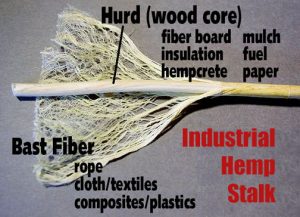 By Rep. Jesse Kremer
By Rep. Jesse Kremer
November 21, 2016 Kewaskum, Wisconsin
What is the first thing that comes to mind when you hear the word “hemp?” Marijuana? I asked someone who is very involved in the fight to end the drug scourge in Washington County and I was a bit taken aback by his answer. His first words were, “There used to be a large processing plant in Hartford years ago.” While I am 110 percent opposed to legalized, recreational marijuana, I have to admit I was ill-educated on the issue of industrial hemp.
Hemp served as a staple crop for the production of clothing and canvas, especially during World War II. Despite the fact that an individual could smoke an entire field of hemp and never become “high,” hemp was classified as marijuana in 1970 under the Controlled Substances Act. Under a Republican led Congress, the 2014 Farm Bill allowed Wisconsin’s Department of Agriculture, Trade and Consumer Protection (DATCP) to conduct research and pilot programs with industrial hemp if it was legalized. So why the original ban? The paper and cotton lobby had a lot to do with the statutory demise of hemp production. We cannot grow it, but have no problem importing $0.5 billion dollars of hemp every year! This is complete lunacy. We should be giving our own farmers this resource. Our farm families have been decimated by tanking dairy, grain and cattle prices while a crop exists that is not only perfect for the Wisconsin soil and climate, but is highly sought after. This could also give birth to a non-existent processing industry and thousands of new jobs in our rural areas.
Modern day hemp produces seed oils that provide more Omega 3s than fish oil; have stronger fibers that last longer than cotton; can be manufactured into super capacitors that store energy, like graphene, at a fraction of the cost; is being used to replace Kevlar in bullet proof vests; strengthens plastics making them 10 times stronger than steel and is also used in brake pads and clothing for firefighters. Wisconsin would not be the first, but we can be the best. Several nearby states are already working on hemp pilot programs and hemp legislation, including Tennessee, Kentucky, Indiana, North Dakota and Minnesota. I propose that Wisconsin take the lead and push to become the national leader in hemp production and processing.